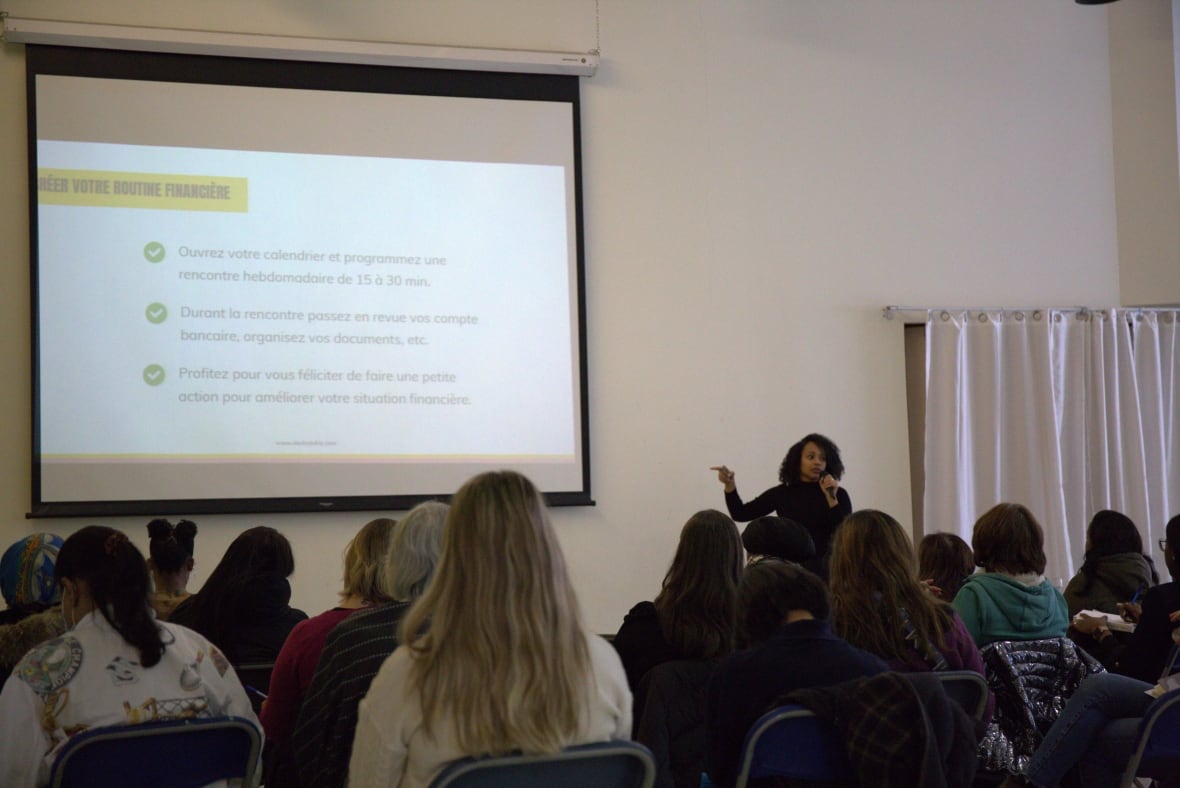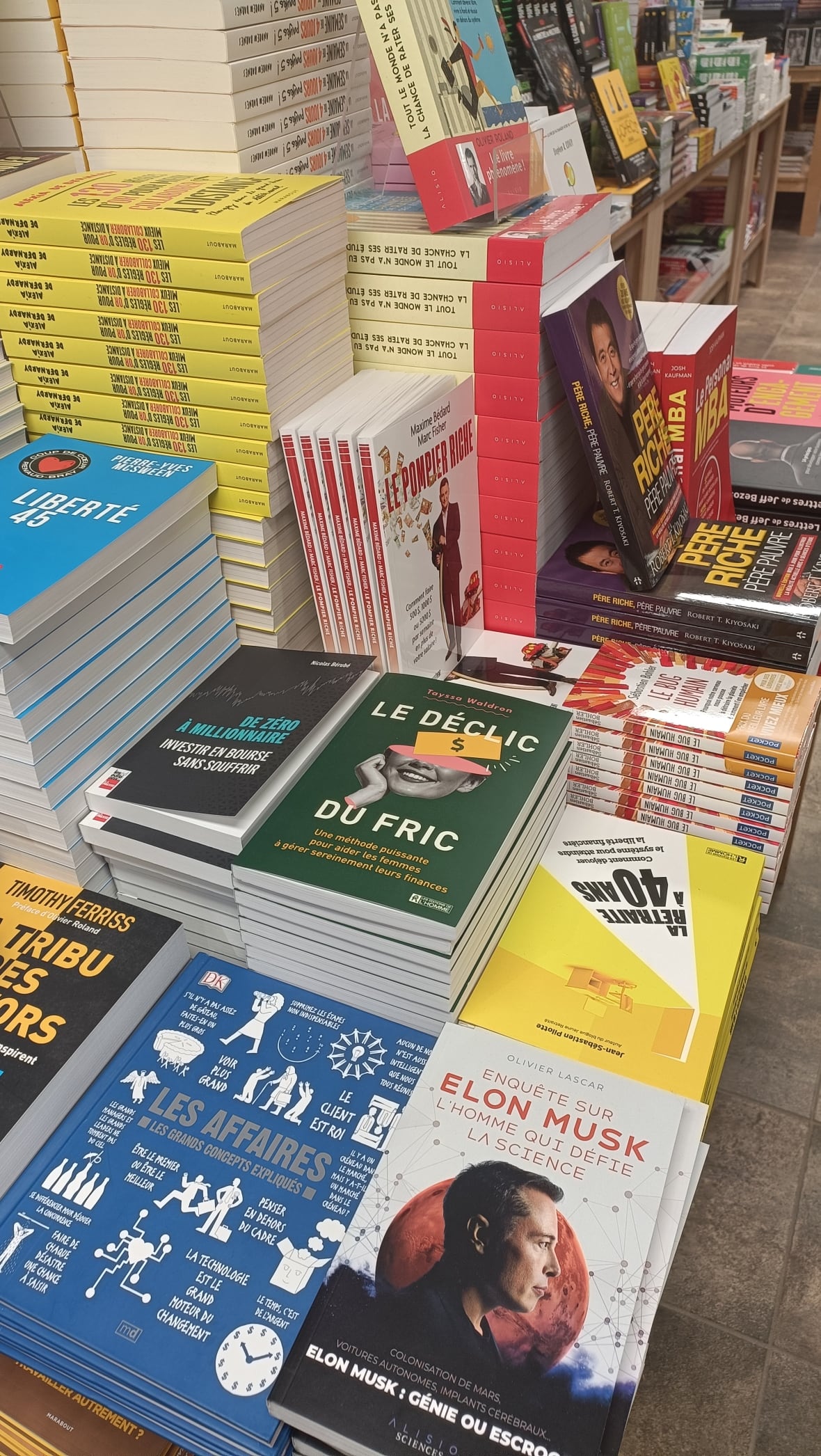There was only one university in French Guiana and a limited number of fields of study.
Waldron, like many French youth in the Caribbean, headed to France at the age of 16 to pursue post-secondary studies.
Upon completion of her master’s degree in environmental project management, she went on to work in fields that were a long way from finance.
“I was very engaged in environmental issues and passionate about technology and I combined those to pursue a career in renewable energy.”
Although she spent a decade working on developing wind farms, she also had side projects helping social entrepreneurs build their technologies, market their innovations and make them more sustainable.
Waldron chose to focus on women in particular because she recognized that, despite the availability of funding and resources, a crucial gap remained in connecting women to the financing, networks and expertise needed to successfully launch a start-up.
It was 2017, while in Paris, that she launched her business matchmaking platform called Tribou.
Two years later, she applied for a visa to Canada with hopes of expanding and, after successfully applying to an innovation program, she settled in Montreal.
The why behind women’s financial decisions
The pandemic lockdown gave Waldron the time she needed to do more research about her Tribou subscribers who were reluctant to accept funding.
Women in her community, which included Black women of different ages, backgrounds and stages, became research subjects. She held workshops and conducted surveys, determined to find out why and how women make their financial decisions.
In one session, Waldron met with a group of female investors who, despite wanting to take on more risk, struggled to do so. When she asked them to reflect on their feelings and goals, the answers revealed how deeply emotions were tied to money.
 Waldron held workshops and conducted surveys, determined to find out why and how women make their financial decisions. Now, she’s committed to helping women build a healthier relationship with money. (Submitted by Tayssa Waldron)
Waldron held workshops and conducted surveys, determined to find out why and how women make their financial decisions. Now, she’s committed to helping women build a healthier relationship with money. (Submitted by Tayssa Waldron)
Waldron was surprised by the fact that none of the women prioritized themselves, instead focusing on how their financial decisions might affect their families, friends and communities.
For her, it was an “a-ha” moment.
“[Men] think me, me, me, will this work for me? Yes or no,” said Waldron, who used to work in tech — a male-dominated industry.
“But we’re all socialized as girls to be kind and generous and it affects us as adults,” she said. “It affects the way we think of our career, money, everything.”
That’s when she shifted her focus from financing to behavioural science, leading to the creation of DĂ©clic du fric.
A French expression that can be loosely translated to “unlocking cash,” DĂ©clic du fric became Waldron’s main project. It’s a digital space where women can find support and the tools to manage their personal or business finances.
Based on her findings, she developed a methodology to help women make more informed decisions by taking into account long-held biases and psychological factors.
“The majority of financial literacy talks about the immediate family or it’s very personal, but with Black women, it’s never just personal finance, it’s collective and you have to include a little of the personal,” she explains.
In 2022, she was offered a book deal. There was growing buzz about her methodology, which combines behavioural science, social science and financial strategies.
‘We’re not condemned to staying poor forever’
Despite Waldron’s book, Le DĂ©clic du fric, being intended for women, Sidibe Elhadj, who nominated her to be a CBC Black Changemaker, says it spoke directly to him.
The pair first met when they worked together in Paris 15 years ago. He says the book’s focus on mindset resonated with him.
He says too often, racialized people operate from a scarcity mindset. Elhadj says Waldron’s book helped him realize that his belief he would never have enough money led him to focus solely on getting by, rather than actively managing his finances.
“Minorities need to understand that we’re not condemned to staying poor forever, to mishandle our finances and to repeat the same mistakes like, for example, not investing,” he said.
“Investing doesn’t necessarily involve a business. You can invest in your own projects.”
He says that he could see how the patterns were also being repeated by his three sisters who were struggling to manage their finances, regardless of how much money they earned. He made a point of not just sharing Waldron’s book with them but introducing them to the author herself.
“I never thought of coming up with projects to put money on the side to invest in property or to go on vacation,” Elhadj said. “It was always about saving for emergencies. The thing is, though, we can have projects in times of emergency. In fact, you may need projects to get out of those emergency situations.”
 Waldron’s book, Le DĂ©clic du fric, draws on psychology and behavioural science to help identify the emotions at the source of financial decision-making. (Submitted by Tayssa Waldron)
Waldron’s book, Le DĂ©clic du fric, draws on psychology and behavioural science to help identify the emotions at the source of financial decision-making. (Submitted by Tayssa Waldron)
For Waldron, the learning goes both ways, and her work with others has prompted introspection about her own relationship with money and her upbringing.
She says she remains inspired by women who, despite major obstacles, continue to find ways to be seen, heard and make moves. It’s the reason she says she remains committed to speaking up about money.
“We’re not used to talking about money so this is my way … to take my place and help all kinds of women to take their place.”
She smiles but shies away from the idea of being a changemaker. She believes her work is far from complete.
In 2025, Waldron is aiming to impact the lives of 1,000 women, empowering them with knowledge that they can share with others to build both financial security and a strong sense of community.
The Black Changemakers is a special series recognizing individuals who, regardless of background or industry, are driven to create a positive impact in their community. From tackling problems to showing small gestures of kindness on a daily basis, these Changemakers are making a difference and inspiring others. Meet all the Changemakers here.
For more stories about the experiences of Black Canadians — from anti-Black racism to success stories within the Black community — check out Being Black in Canada, a CBC project Black Canadians can be proud of. You can read more stories here.
 (DestaNation Creative Agency)
(DestaNation Creative Agency)
Source link : http://www.bing.com/news/apiclick.aspx?ref=FexRss&aid=&tid=6783e6e7018d433fac8179e57dfbf44c&url=https%3A%2F%2Fwww.cbc.ca%2Fnews%2Fcanada%2Fmontreal%2Ftayssa-waldron-black-changemakers-1.7428790&c=6506653148867298886&mkt=en-us
Author :
Publish date : 2025-01-10 20:00:00
Copyright for syndicated content belongs to the linked Source.











